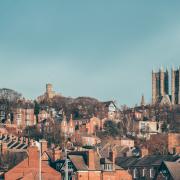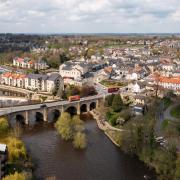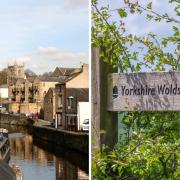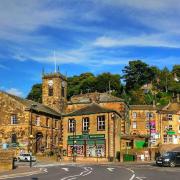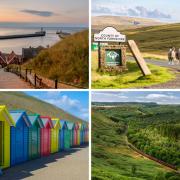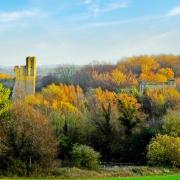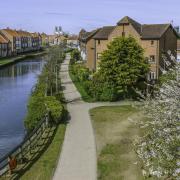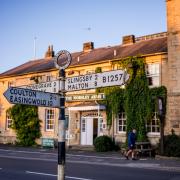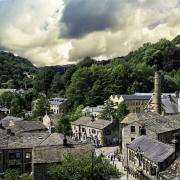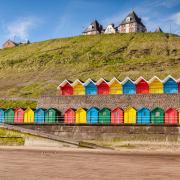A rich seam of history runs through a former coal mining community that should be celebrated, says Simon Bulmer. Photographs by Joan Russell

The town of Rothwell has an unlikely claim to fame: it was once more important than Leeds, valued at £8 in the Domesday Book, compared to a mere £5 for its now much larger neighbour. These days, however, you are more likely to find people travelling out of Rothwell to go to work than the other way round.
The M1 and M62 on its doorstep have extended job opportunities since the collieries closed in the 1980s, but traffic has also helped to rob Rothwell of its centre. Holy Trinity Church, built on a rise, looks across to a market cross, maypole and stocks – all ingredients of a traditional English village - but they are now effectively separated from each other by a road and roundabout. The historic church contains an old coat reputed to have belonged to John O’Gaunt, the duke who in 1399 is said to have slain the last wild boar in England when the area was a royal hunting park.
While traffic hasn’t done this part of Rothwell any favours, the town’s main shopping area, Commercial Street, is pedestrianised, and curved benches, tubs of flowers and a traditional-style cast iron bus shelter have done much to improve this modest row of independent shops.
Across the road, the market cross is still the heart of Rothwell, acting as a focus for gatherings over 200 years: it’s where political and trade union groups have met, John Wesley preached his stirring sermons and the Bell Man, in his smart postal uniform, gave out notices of events.

Rothwell was a mining community with six collieries and most people were employed in the mining industry. The tradition of galas and brass bands continues and the market cross is the site of a summer fair where children from local primary schools dance round the maypole and vie to be crowned May Queen or King.
At the eastern end of the town there’s a fine park, its tennis courts, bowling green and bandstand developed in the 1930s with the help of grants from miners’ welfare organisations. The park skirts the road leading to the gates of Oulton Hall a mile or so away.
It’s the town’s history which could add a greater sense of wellbeing. ‘I don’t think many people really appreciate the importance of Rothwell in history,’ says Simon Bulmer, who along with Rothwell Historical Society volunteers co-authored The History of Rothwell Castle and Medieval Life.
‘For me, I think knowing the history of Rothwell gives you a better sense of community. It gives you a sense of pride. It’s good to know that Kings of England stayed at Rothwell.’ Its Castle was famous for its hunting lodge which had John O’Gaunt as one of its owners. Edward III held tournaments here. Rothwell was granted market rights in the 15th century and held twice yearly fairs. ‘Rothwell was a good place to be, surrounded by woodland with plenty of hunting and fertile land,’ says Simon.
He adds the town is still a good place to live for many different reasons (he has lived in Rothwell for more than 20 years) and although today it is a satellite of Leeds he believes its future lies in the celebration of its history with various events to attract people to the town.
He’s keen to celebrate the town’s medieval history but also to tell the story of Rothwell’s miners which he says is neglected. Coal mining has been carried out in the area for over 600 years, ending in 1983. Records show mining, likely as bell or bee hive pits sunk close to the surface, took place in Rothwell as early as 1406. This shallow type of mining continued until the beginning of the 18th century.
There were many local pits including the Fanny, the Rose, and Rothwell Water Haigh. ‘The miners deserve medals for what they endured in the pits. They should be celebrated,’ says Simon. ‘All people seem to remember is Margaret Thatcher and the miners’ strike.’






